Detailed introduction of the University of Geneva:
Introduction and Overview
Nature of the institution: The University of Geneva is a public research university located in Geneva, Switzerland.
Student size: It has about 19,078 students, of which 62% are women and nearly 40% are from abroad. The student population comes from more than 150 countries and is highly internationalized.
Geographic location: The school is located in several areas in the east of Geneva and the nearby city of Carouge, and the buildings distributed in different locations are relatively scattered.
History and establishment time
The University of Geneva was founded in 1559 by John Calvin. It was originally a seminary aimed at training pastors and civil servants for Protestant Geneva. It began to teach law in 1565 and was officially secularized in 1873. It got rid of religious constraints and gradually developed into a comprehensive university.
School strength
Faculty: As one of the largest universities in Switzerland, it has about 4,645 full-time employees, including many professors and researchers with profound attainments in various disciplines, providing solid talent support for teaching and scientific research.
Teaching resources: The school has 9 colleges and 13 It has 3,000 inter-college centers and institutes, offering more than 613 courses, covering all levels from undergraduate to doctoral, and 343 continuing education courses, covering disciplines including exact sciences, medicine, humanities, social sciences, law, etc.
Research achievements: It has achieved remarkable research results in many disciplines, especially in life sciences (molecular biology, bioinformatics), elementary particle physics, astrophysics and other research fields. It is a member of the European Research University Alliance, and its research results have a wide influence internationally.
Educational philosophy
The University of Geneva focuses on cultivating students' comprehensive literacy and interdisciplinary abilities, emphasizing the close integration of teaching and research. Through interdisciplinary curriculum settings and research projects, it enables students to establish connections between different disciplines, cultivate innovative thinking and the ability to solve complex problems, and is committed to providing students with an international educational environment, encouraging students to participate in international exchanges and cooperation projects, and improving students' international vision and cross-cultural communication. Flow capabilities to better adapt to the development trend of globalization.
Key laboratories and disciplines
Key laboratories: The University of Geneva is home to or co-home to seven Swiss national centers of excellence, including Frontiers in Genetics, MANEP, Planets, Swiss Maps, Chemical Biology, Synaptic Basis of Mental Illness, and Overcoming Vulnerability from a Life Cycle Perspective, covering multiple cutting-edge scientific fields.
Key disciplines: Life sciences, physics, medicine, law, economics and management, psychology, translation and other disciplines enjoy a high reputation internationally. Among them, the medical major has an advanced level in disease diagnosis, treatment and medical research; the law major has a long history and has trained many outstanding legal talents; the economics and management major has achieved fruitful research and teaching results in the fields of international economy and finance.
Department settings
The University of Geneva has a total of 9 colleges, as follows:
Faculty of Science: covers basic natural sciences such as mathematics, physics, chemistry, and biology.
Medical School: provides medical education and research programs, including professional directions such as clinical medicine and medical research.
Faculty of Arts: involves disciplines in the humanities such as philosophy, history, literature, and linguistics.
Geneva School of Economics and Management: Focuses on teaching and research in economics, management and other related majors.
Geneva School of Social Sciences: Covers social science disciplines such as sociology, political science, and anthropology.
School of Law: One of the school's traditional advantage colleges, cultivating legal professionals.
School of Theology: With a profound historical background, it is engaged in teaching and research in the field of theology.
School of Psychology and Educational Sciences: Researches theories and practices related to psychology and educational sciences.
School of Translation: Provides professional translation training and research projects.
Ranking
2024 QS World University Ranking: 155th.
2016 Shanghai Ranking of World Universities Academic Ranking: 53rd.
2016 QS World University Ranking: 89th.
2016 Times Higher Education World University Ranking: 131st.
Fees
Tuition fees: Tuition fees at the University of Geneva vary depending on the major and degree level. Generally speaking, the tuition fees for undergraduate and master's programs are around 500-600 Swiss francs per semester. There is usually no tuition fee for doctoral programs, but some registration fees and other fees may need to be paid.
Living expenses: The cost of living in Geneva is relatively high, and the monthly living expenses are around 1,500-2,000 Swiss francs, including accommodation, food, transportation, etc.
Campus
Teaching facilities: The University of Geneva does not have a centralized campus, and its buildings are scattered throughout the city, but the main teaching facilities are complete, including modern teaching buildings, libraries, laboratories, etc. For example, Uni Bastions, built between 1868 and 1871, is a symbol of Geneva's academic life and is the home of the Protestant Theology and Arts Faculty; Uni Dufour, whose architecture was inspired by Le Corbusier, is the home of the school's management and administrative departments; Uni Mail is the largest building dedicated to social sciences in Switzerland, and is currently the home of the Faculty of Law, the Faculty of Economics and Management, the Faculty of Psychology and Education, and the Faculty of Translation.
Campus life: Campus life is rich and colorful. The school has various student clubs and organizations, such as the Student Union, academic clubs, cultural clubs, sports clubs, etc. Students can participate in corresponding club activities according to their interests and hobbies. In addition, the school also often holds various academic lectures, cultural activities, sports competitions, etc., which enriches students' extracurricular life.
-
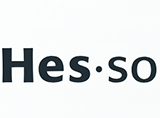
University of Applied Sciences and Arts of Western Switzerland
-

University of Basel
-

Swiss Federal Institute of Technology Zurich
-
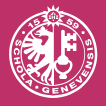
University of Geneva
-
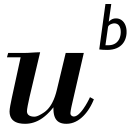
University of Bern
-
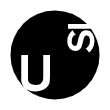
Università della Svizzera Italiana
-
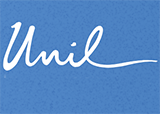
University of Lausanne
-

Franklin University Switzerland, FUS
-

Bern University of Applied Sciences
-

University of St. Gallen
-

Mesoamerican University
-

Istmo University
-

Mariano Galvez University of Guatemala
-

Regional University of Guatemala
-

Galileo University
-

Francisco Marroquín University
-

Rafael Landívar University
-

University of the Valley of Guatemala
-

University of San Carlos of Guatemala
-

Technological Institute of Tlaxcala Plateau
-

Golfo University
-

Technological University of South Sonora
-

Technological University of Huejotzingo
-

Tizimín Institute of Technology
-

Chilpancingo Institute of Technology
